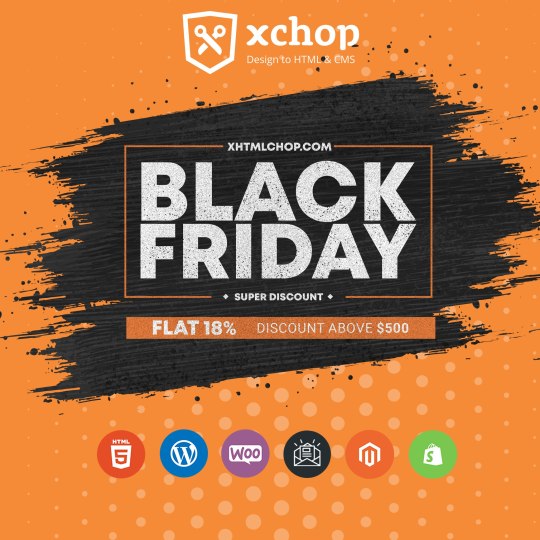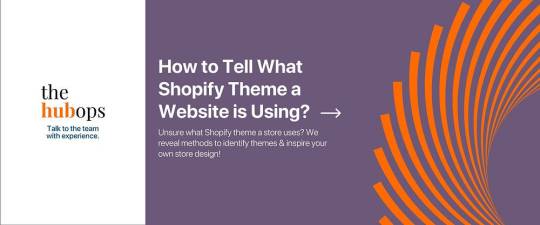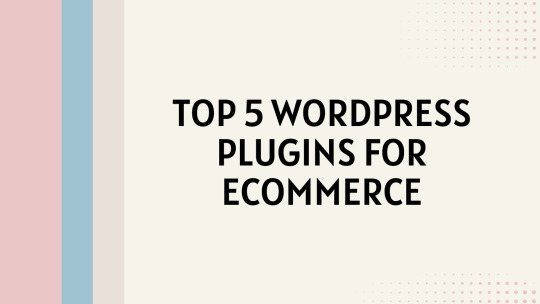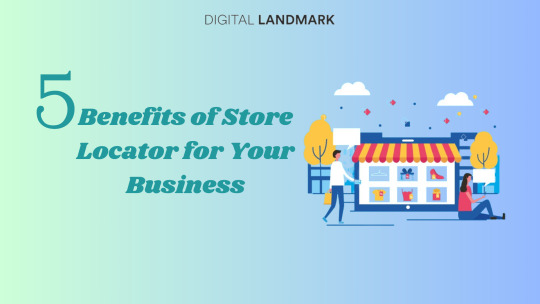#Shopify Plugin
Explore tagged Tumblr posts
Text

From Idea to App Store: Developing Your First Shopify Plugin
Get expert tips on developing a Shopify plugin, from idea to launch, covering design, development, costs, and effective promotion techniques.
#Shopify Plugin development company#Shopify Plugin development#Shopify Plugin#Shopify Plugin development services
0 notes
Text
Leading Shopify Apps Development Agency in India
As the leading Shopify apps development agency in India, we specialize in creating custom, high-performance apps that enhance your online store's functionality and user experience. Our expert team is dedicated to delivering innovative solutions tailored to meet your specific business needs. With a focus on seamless integration and superior performance, we help drive growth and efficiency in your eCommerce operations. Partner with us for top-tier Shopify app development services.
0 notes
Text
Streamlining Communication: Unveiling the Best Shopify Contact Form Plugins
In the dynamic world of e-commerce, establishing seamless communication channels between businesses and customers is paramount. One of the key components in achieving this is a robust and user-friendly contact form. Shopify, being a popular e-commerce platform, provides a myriad of options for integrating contact forms into your online store. In this blog post, we will explore and highlight the best Shopify contact form plugins that can elevate your customer interaction game.

The Importance of Contact Forms
Before delving into the specifics of the best Shopify contact form plugins, let's first understand the significance of having an effective contact form on your e-commerce website.
Customer Engagement: A well-designed contact form encourages customers to reach out with queries, feedback, or concerns. This engagement fosters a sense of trust and transparency between the customer and the business.
Problem Resolution: Contact forms serve as a direct link for customers to communicate issues they may be facing. Quick and efficient resolution of problems can significantly impact customer satisfaction and loyalty.
Lead Generation: Contact forms are not just for troubleshooting; they can also be powerful tools for lead generation. By collecting customer information through these forms, businesses can build their email lists and tailor marketing strategies.
Professionalism: A professionally designed contact form adds a touch of legitimacy to your online store. It signals to customers that your business is open to communication and takes their concerns seriously.
Top Shopify Contact Form Plugins
Now, let's explore some of the best Shopify contact form plugins that can enhance your store's communication capabilities.
1. Form Builder with File Upload by HulkApps
HulkApps' Form Builder is a versatile tool that empowers Shopify store owners to create customizable contact forms effortlessly. What sets this plugin apart is its file upload feature, enabling customers to attach relevant documents or images when submitting their inquiries. This is particularly useful for resolving specific issues or addressing product-related queries that may require visual clarification.
Key Features:
Drag-and-drop form builder for easy customization
File upload capability for added convenience
Mobile-responsive forms for a seamless user experience
Integration with popular email marketing tools
2. Zendesk Chat + Email by Zendesk
Zendesk is a renowned name in customer support, and their Shopify integration brings forth a powerful combination of live chat and email. The contact form feature seamlessly integrates with Zendesk's ticketing system, allowing for efficient management and resolution of customer inquiries. Real-time chat functionality also enhances customer engagement.
Key Features:
Live chat for instant customer support
Email ticketing system for organized query resolution
Customizable contact forms to align with your brand
Analytics to track and improve customer interactions
3. Contact Us Form + Captcha by POWr.io
POWr.io's Contact Us Form is a user-friendly solution for creating sleek and functional contact forms. With an intuitive interface, this plugin makes it easy to design and embed contact forms anywhere on your Shopify store. The inclusion of a captcha feature enhances security and prevents spam submissions.
Key Features:
Simple drag-and-drop form builder
Captcha integration for spam prevention
Customizable design to match your store's aesthetic
Analytics to track form submissions
4. Reamaze by Reamaze
Reamaze is an all-in-one customer communication platform that seamlessly integrates with Shopify. Beyond traditional contact forms, Reamaze provides features like live chat, knowledge base, and automated workflows. The unified dashboard simplifies customer communication management, making it an ideal solution for growing e-commerce businesses.
Key Features:
Multi-channel support (email, chat, social media)
Automated workflows for efficient query resolution
Knowledge base for self-service customer support
Integration with third-party apps and tools
5. Tidio Live Chat + Bots by Tidio Ltd.
Tidio offers a comprehensive solution for customer communication, combining live chat, chatbots, and email in one platform. The live chat feature provides real-time assistance, while the chatbots can handle common queries automatically. The email component ensures that customer inquiries submitted through the contact form are promptly addressed.
Key Features:
Live chat for instant communication
Chatbots for automated responses
Email support for detailed queries
Mobile app for on-the-go customer support
Conclusion
In conclusion, selecting the best Shopify contact form plugin depends on the specific needs and preferences of your online store. Whether you prioritize file uploads, live chat, spam prevention, or a comprehensive customer communication platform, there's a plugin that can cater to your requirements.
Investing in a reliable and user-friendly contact form plugin is not just about fulfilling a basic requirement; it's about enhancing the overall customer experience and building lasting relationships. As you explore the options mentioned above, consider the unique features that align with your business goals and customer service objectives. Ultimately, a well-implemented contact form can be a game-changer in creating a positive and communicative online shopping environment for your customers.
0 notes
Text
#free shipping bar shopify#free shopify apps#free shopify review app#best free shopify apps#the best free shopify apps#best shopify apps#shopify seo apps#shopify plugin
0 notes
Text
Hire Professional Web Designing Services

I provide professional web designing services that are standard to your specific requirements. With a team of skilled designers, I excel in creating websites that perfectly match your brand identity and grade. Our focus is on creating visually appealing and impactful designs, making us the top choice for those looking to make their mark online. We ensure seamless user experience across all digitals. If you need a new website or want to redesign your permanent website, my expertise in web design will set you apart in the competitive offline landscape.
#hire shopify developer#web development#freelance wordpress plugin developer#freelance web developer#hire front-end wordpress developer
2 notes
·
View notes
Text

Get ready for the biggest savings of the year with XHTMLCHOP! We're offering an 18% discount on all new orders. Whether you need PSD to HTML, WordPress, Shopify, or any other conversion service, now is the perfect time to get started. Use Coupon Code: BlackF24 Don't miss out on this incredible deal! Visit our website and place your order today. Offer valid for a limited time only.
Visit us: https://www.xhtmlchop.com
#web#webdesign#figma to html#joomla#figma to magento#figma to wordpress#magento#website#webdevelopment#web graphics#wordpressdesign#psd to wordpress#wordpress#wordpress plugins#html#shopify development company#shopify#ecommerce#online store#online businesses#dropshipping
1 note
·
View note
Photo

10 posts!
#10 posts#tumblr milestone#headless wordpress development services#headless wordpress agency#shopify partner program#top 5 wordpress plugins for websites in 2024#islandwizards#iw uk#Wizards island#Island wizards
1 note
·
View note
Text
Key Differences: Shopify vs WooCommerce Inventory Management
This video provides a comprehensive comparison of inventory management features between two leading e-commerce platforms: Shopify and WooCommerce inventory management. It explores their unique capabilities, user-friendliness, and customization options, helping businesses determine which platform best suits their inventory management needs. Key topics include stock tracking, bulk import/export functionalities, low stock alerts, and integration options. Ideal for entrepreneurs and online retailers looking to optimize their inventory processes and enhance operational efficiency with best WooCommerce inventory management plugin.
#apeksops#Shopify#WooCommerce#inventory management#e-commerce platforms#stock tracking#best woocommerce inventory management plugin#woocommerce inventory management plugin#wordpress inventory management#supply chain operations management
0 notes
Text
HTML Templates, Shopify & WordPress Themes | Digishop
Explore Digishop for high-quality digital products, including HTML site templates, Shopify themes, WordPress plugins, mobile app templates, and more. Empower your online presence with our premium, customizable digital solutions.
https://digishop.life/
#Digital products#HTML templates#Shopify themes#WordPress plugins#WordPress themes#mobile app templates#template kits#website templates#eCommerce templates#Digishop
1 note
·
View note
Text
How to Tell What Shopify Theme a Website is Using?

Ever browsed a beautifully designed Shopify store and wondered, “What Shopify theme is this?” Unveiling a store’s theme can be a valuable source of inspiration, especially if it boasts a sleek design, intuitive Shopify theme flow, or high conversion rates. This blog post delves into various methods to help you identify the theme powering any Shopify store.
Why Identify a Shopify Theme?
There are several reasons you might want to know what Shopify theme a website is using:
Design Inspiration: If you encounter a visually appealing store, identifying its theme can provide inspiration for your own Shopify store’s design. You can then explore similar themes or the theme itself (if available on the Shopify Theme Store) to see if it aligns with your brand vision.
Performance Analysis: If a store boasts exceptional loading speeds, you might be curious about its theme. Identifying the theme can lead you to research the fastest loading Shopify themes, potentially influencing your theme selection. Shopify theme flow also plays a role in user experience, so understanding a competitor’s theme can provide insights into their conversion funnel.
SEO Considerations: Certain themes are known for their best Shopify theme for SEO features. Identifying the theme used by a high-ranking competitor store can offer valuable insights into on-page SEO optimization strategies.
Conversion Rate Optimization: If a store seems to convert visitors effectively, you might be curious about their theme. Identifying a high converting Shopify theme (or elements within it) can inspire your own conversion rate optimization (CRO) efforts.
Methods to Identify a Shopify Theme
Now that you understand the benefits of knowing what Shopify theme a website is using, let’s explore the methods to achieve this:
1. Inspecting the Page Source:
This method involves diving into the website’s code. Here’s how:
Open the website you want to investigate.
Right-click anywhere on the page and select “View Page Source” or “Inspect” (depending on your browser).
Navigate to the “Search” bar within the developer tools.
Type “Shopify.theme” and press Enter.

2. Utilizing Shopify Theme Detectors:
Several browser extensions and online tools function as Shopify theme detectors. These tools analyze the website’s code and provide an educated guess about the theme in use. Here are some popular options:
Shopthemedetector.com: This user-friendly website allows you to enter a Shopify store URL and receive information about the theme, including its name and a confidence score for the accuracy of the detection.
Chrome Extensions: Several Chrome extensions like “Shopify Theme Detector” or “Lookup: Find Shopify Theme” can be installed to identify themes directly within your browser.
Important Note: While Shopify theme detectors are convenient, they may not always be accurate. They often rely on identifying patterns within the code, and newer or custom themes might not be recognized.
3. Checking for Theme Signature Elements:
Some Shopify themes have unique design elements or layouts that become recognizable with experience. Browsing the Shopify Theme Store and familiarizing yourself with popular themes can equip you to identify signature elements by sight. This method is less precise but can be helpful for experienced users.
Beyond Identifying the Theme
While it’s helpful to know what Shopify theme a website is using, keep in mind that a theme is just one piece of the puzzle. Successful Shopify stores often implement additional customizations, plugins, and design tweaks to achieve their unique look and functionality.
Here are some additional considerations:
Focus on Functionality: Don’t get fixated solely on the theme’s aesthetics. The theme’s functionality and suitability for your specific needs are equally important. Consider factors like product type, target audience, and desired user experience when evaluating a theme.
Explore Customization Options: Most Shopify themes offer a degree of customization. You can choose colors, fonts, and layouts to create a unique look even within a pre-designed theme.
Consider Building a Custom Theme: For highly specific needs or a truly one-of-a-kind brand experience, you might explore building a custom Shopify theme. However, this requires significant development expertise.
Conclusion
Identifying a Shopify theme can be a fun and informative exercise, sparking inspiration and providing insights into successful design strategies. By combining the methods outlined above — inspecting the page source, utilizing Shopify theme detectors, and checking for theme signature elements — you can often determine the theme powering a captivating Shopify store.
Important Considerations:
Remember, while knowing the theme is helpful, it’s just the tip of the iceberg. Successful Shopify stores often leverage a combination of factors:
Theme Functionality: Choose a theme that aligns with your product type, target audience, and desired user experience, not just aesthetics. Fastest loading Shopify themes might be ideal for some, while others might prioritize features for high converting Shopify themes.
Customization Potential: Most themes offer customization options. Leverage these to tailor the theme to your brand identity and create a unique look.
Building a Custom Theme: For highly specialized needs, consider a custom theme. However, this approach requires significant development expertise. If you’re on a budget or new to Shopify, explore pre-designed themes with customization options.
#shopifycms#shopify#shopping#shopify website#shopify developer#shopify agency#custom cms solutions#How Identify a Shopify Theme?#plugins#shopify agency in cincinnati#webdevelopment#digitalmarketing#shopify development#ecommerce#webdesign#onlinebusiness
0 notes
Text
Boost Sales with Top 5 WordPress Plugins for Ecommerce
Introduction to WordPress Ecommerce Plugins
In the fast-paced world of online retail, having the right tools can make all the difference. To stay ahead, it's crucial to use the best ecommerce plugins for WordPress. These powerful plugins for WordPress not only enhance the functionality of your store but also provide a seamless shopping experience for your customers. To optimise your site for better performance or add new features to drive sales, the best ecommerce plugin for WordPress can help you achieve your goals.

WordPress has emerged as one of the most popular platforms for building websites, thanks to its flexibility, ease of use, and extensive range of plugins. For e-commerce, these plugins are particularly valuable as they can add significant functionality to your store, from payment gateways and inventory management to customer reviews and SEO optimization. The right plugins can streamline your operations, improve customer satisfaction, and ultimately boost sales.
1. Yoast SEO: Optimize for Search Engines
Why Yoast SEO?
Search engine optimization (SEO) is crucial for driving organic traffic to your online store. Yoast SEO is one of the most popular WordPress plugins, trusted by millions of websites to improve their search engine rankings. It offers a comprehensive suite of tools to optimise your site’s content, meta descriptions, keywords, and more.
Key Features
Content Analysis: Yoast SEO provides real-time analysis of your content, offering suggestions to improve readability and SEO. This ensures that your content is both user-friendly and search engine-friendly.
XML Sitemaps: The plugin automatically generates XML sitemaps, making it easier for search engines to crawl your site.
Meta Tags and Descriptions: Easily edit meta tags and descriptions to ensure your pages have optimised and compelling summaries that attract clicks.
Breadcrumbs: Improve site navigation with breadcrumbs, which enhance the user experience and SEO.
2. WooCommerce: Power Your Online Store
Why WooCommerce?
WooCommerce is the most popular eCommerce plugin for WordPress, offering a flexible and robust platform to sell anything, from physical products to digital downloads. It’s highly customizable, with a plethora of extensions to cater to various business needs.
Key Features
Product Management: Add, edit, and manage products with ease. WooCommerce supports various product types, including simple, grouped, external/affiliate, and variable products.
Payment Gateways: Integrates seamlessly with major payment gateways like PayPal, Stripe, and more, ensuring secure and smooth transactions.
Shipping Options: Configure shipping methods, including free shipping, flat rates, and real-time calculations.
Inventory Management: Keep track of stock levels, manage backorders, and get notifications for low-stock items.
Analytics and Reporting: Access detailed reports on sales, refunds, coupons, and more to make informed business decisions.
3. Contact Form 7: Enhance Customer Communication
Why Contact Form 7?
Effective communication is key to building trust and ensuring customer satisfaction. Contact Form 7 is a versatile and easy-to-use plugin that allows you to create and manage multiple contact forms on your site.
Key Features
Form Customization: Create and customise contact forms using simple markup. Add various form fields, including text input, radio buttons, checkboxes, and more.
Spam Protection: Protect your forms from spam with CAPTCHA and Akismet integration.
Email Integration: Receive form submissions directly to your email inbox, ensuring you never miss a customer inquiry.
AJAX Submission: Enable smooth form submission without reloading the page, enhancing the user experience.
4. Jetpack: Secure and Speed Up Your Site
Why Jetpack?
Jetpack is an all-in-one plugin that offers a suite of tools to enhance your site’s performance, security, and user engagement. Developed by Automattic, the same team behind WordPress.com, Jetpack is a must-have for any serious eCommerce site.
Key Features
Security: Protect your site with features like real-time backups, malware scanning, and brute force attack protection.
Performance: Speed up your site with content delivery network (CDN) support, image optimization, and lazy loading.
Marketing: Enhance your marketing efforts with social media integration, automated social sharing, and site statistics.
Customization: Customize your site with additional widgets, galleries, and contact forms.
5. OptinMonster: Convert Visitors into Customers
Why OptinMonster?
OptinMonster is a powerful lead generation plugin that helps you convert visitors into customers. It offers a variety of tools to create high-converting optin forms, pop ups, and campaigns tailored to your audience.
Key Features
DragandDrop Builder: Create stunning optin forms and popups with a user-friendly drag and drop builder.
Targeting Options: Use advanced targeting options like page-level targeting, geolocation targeting, and exit-intent technology to reach the right audience at the right time.
A/B Testing: Test different versions of your campaigns to see which one performs better, optimising your conversion rates.
Analytics: Access detailed analytics to track the performance of your campaigns and make data-driven decisions.
How to Choose the Best ECommerce Plugin for Your WordPress Site
Selecting the best e-commerce plugin for WordPress depends on your specific business needs. Here are some factors to consider:
Types of Products: Determine whether you are selling physical goods, digital products, or services. Some plugins, like Easy Digital Downloads, are better suited for digital products, while others, like WooCommerce, handle a mix of product types.
Budget: Consider your budget for purchasing premium plugins or addons. While some plugins are free, others may require a subscription or one-time payment for advanced features.
Scalability: Choose a plugin that can grow with your business. If you plan to expand your product range or scale up operations, ensure the plugin can handle increased traffic and transactions.
Ease of Use: Look for plugins with user-friendly interfaces and good customer support. This is especially important if you are new to e-commerce or WordPress.
Integration: Check if the plugin integrates well with your existing tools and platforms, such as payment gateways, email marketing services, and social media channels.
Incorporating the best ecommerce plugins for WordPress into your online store can provide immense value and significantly boost your sales. Whether you’re selling physical goods, digital products, or services, these plugins offer the functionality, efficiency, and optimization needed to enhance your business operations and improve customer satisfaction.
By selecting and implementing the right plugins, you can transform your WordPress site into a powerful e-commerce platform. Evaluate your business needs, consider the features and benefits of each plugin, and choose the ones that align best with your goals. With the right tools at your disposal, your online store will be well equipped to thrive in the competitive e-commerce landscape.
Ready to take your eCommerce business to the next level? Don't let your website blend into the crowd. Empower your online store with WordPress plugins and watch your sales soar. Click here to start your journey to increased sales and customer satisfaction!
0 notes
Text
Top 5 Benefits of Store Locators for Your Business

In today’s competitive market, a store locator is essential for businesses aiming to enhance their customer experience and increase sales. With the help of a user-friendly store locator map, businesses can guide customers to their nearest locations effortlessly. A customer can not only find good information about the products but also about their business, everything from great photos to addresses and phone numbers of all the local stores. A customer will surely like this because it saves time and allows him to quickly find the information he needs.
What is a Store Locator?
In the digital age, businesses must adapt to meet the evolving needs of their customers. One such adaptation is the implementation of a store locator. A store locator is a tool, typically integrated into a business's website or mobile app, that helps customers find the nearest physical store locations. By entering their current location or zip code, customers can quickly discover the closest stores, along with details such as contact information, operating hours, and directions.
Store locators often come with interactive maps, which further simplify the search process and enhance the user experience. For businesses with multiple locations, a store locator is an invaluable tool that bridges the gap between online browsing and in-store shopping, providing a seamless transition for customers.
How Can a Store Locator Help a Business and Why Does It Matter?
In an era where convenience is king, a store locator offers a significant value-add for businesses and customers alike. For businesses, it serves as a vital link between their online presence and physical stores, driving foot traffic and boosting in-store sales. When customers can easily find and visit a store, they are more likely to make a purchase, leading to increased revenue.
Moreover, a store locator enhances the customer experience by providing a hassle-free way to find store locations. This ease of use not only increases customer satisfaction but also fosters loyalty and repeat business. According to a study by the National Retail Federation, 83% of shoppers prefer to visit a store in person if it’s conveniently located. Therefore, providing a reliable store locator can directly impact a business’s bottom line by ensuring customers have the information they need at their fingertips.
Additionally, store locators offer businesses valuable insights into customer behavior. By analyzing search patterns and location data, businesses can make informed decisions about store placements, marketing strategies, and inventory management. This data-driven approach allows businesses to optimize their operations and better meet customer needs.
Top 5 Benefits of Store Locators
1. Increased Foot Traffic
One of the most immediate benefits of implementing a store locator is the increase in foot traffic to physical store locations. When customers can quickly and easily find the nearest store, they are more likely to visit.
According to the International Council of Shopping Centers (ICSC), 90% of retail sales still occur in physical stores, underscoring the importance of driving customers to brick-and-mortar locations. A store locator can significantly boost foot traffic by providing customers with convenient access to store information, thereby encouraging them to visit in person.
2. It will Enhance Customer Satisfaction
Customer satisfaction is a critical component of business success, and a store locator plays a crucial role in achieving it. A store locator provides a user-friendly interface that allows customers to find store locations effortlessly, leading to a positive shopping experience. When customers can quickly locate a store, they are more likely to feel satisfied with their overall experience.
According to a survey by PwC, 73% of consumers say that a good experience is a key factor in influencing their brand loyalties. Therefore, a well-designed store locator can enhance customer satisfaction and build long-term loyalty.
3. It will Help in Improving Local SEO and Online Visibility
A store locator can also improve a business’s online visibility and local search engine optimization (SEO). By integrating a store locator into their website, businesses can leverage local keywords and optimize their content for local searches. This means that when potential customers search for stores in their area, the business is more likely to appear in the search results.
According to Google, 46% of all searches have a local intent, highlighting the importance of local SEO. By improving their online visibility, businesses can attract more customers and drive traffic to their physical stores.
4. More Precise Data-Driven Insights
Store locators provide businesses with valuable data and insights into customer behavior. By analyzing search patterns, location data, and user interactions with the store locator, businesses can gain a better understanding of their customers’ needs and preferences. This data can inform various aspects of business operations, from marketing strategies to inventory management.
For example, if a significant number of searches come from a specific area, it might indicate a high demand for a new store location in that area. Utilizing these insights can lead to more informed business decisions and better overall performance.
5. Cost-Effective Marketing Tool
Implementing a store locator is a cost-effective way to enhance marketing efforts and reach a broader audience. Unlike traditional marketing methods that can be expensive and time-consuming, a store locator provides a continuous, automated solution for directing customers to store locations. Additionally, it can be integrated with other marketing campaigns, such as email marketing or social media promotions, to further drive traffic and engagement.
According to HubSpot, businesses that prioritize SEO and inbound marketing see 61% lower cost per lead than those using outbound marketing. A store locator is a valuable addition to any marketing strategy, offering a high return on investment with minimal ongoing costs.
Conclusion
In conclusion, a store locator is an essential tool for modern businesses looking to enhance customer experience, drive foot traffic, and optimize operations. By providing customers with an easy way to find store locations, businesses can improve customer satisfaction, boost sales, and gain valuable insights into customer behavior. The benefits of a store locator extend beyond simple convenience, offering significant value-adds that can impact a business’s success and growth. As the retail landscape continues to evolve, implementing a store locator can help businesses stay competitive and meet the changing needs of their customers.
Ready to enhance your business and improve customer satisfaction? Implement a store locator today and start reaping the benefits! Contact us to get started.
0 notes
Text
Boost Sales with these Free Shopify Review Apps
The following search terms will help you find Shopify review apps that you can use to boost your sales.
If you are the type of person who loves getting free stuff, you will love these Shopify review apps. I've had these installed for several weeks and can testify to their effectiveness. All four of them are great for boosting sales and increasing conversion rates. They each offer a unique way to save shoppers time and reduce frustration and stress.
1. Shopify Widget:
This is the default app on the Appstore and is probably the most used Shopify review app. The Widget helps you determine whether a customer who opens a Shopify store is a new one or not.
When a customer adds a store to Shopify, they can also add a review. Most people are more likely to rate a Shopify store they've already visited, rather than a brand new store they're just installing. With the Widget you can easily find out whether a new customer opened a Shopify store.
The Shopify Widget only works with the latest version of the app and for customers with Shopify Plus accounts. You will need the Widget to see the review and save results on the Shopify store page, but it works with all versions of Shopify.
This is an essential app if you want to make the most of your SEO efforts.
You can download the free Shopify review app by searching for it in the Play Store here.
2. Shopify Reviews Plus:
This is probably the most useful app in this list, but the reviews are divided into 3 categories:
You can still get a great number of useful reviews by making sure you're in Category 1, as this is where you can find the ones that are most relevant to you. There are no in-depth reviews in this app but the first 50 are fairly helpful, including the 99, 80, 85 and 90 scores.
You can download the free Shopify review app by searching for it in the Appstore here.
3. Chunky Swipe Review App:
This is a nice way to find specific reviews you don't see from the default search app. The Chunky Swipe app uses some unique review analytics that lets you discover reviews that appear to be about products in your Shopify store or posts you've made in your social channels. For example, if someone left a review for a blog post you made about an product on your Facebook page, you can tap that specific post and see what other customers have said about it.
You can download the free Shopify review app by searching for it in the Appstore here.
As you can see from the list above, you have a lot of options when it comes to free Shopify review apps. These are just my favorites but you should really try them out and see what you think.
#best free shopify apps#free shopify review app#the best free shopify apps#best shopify apps#free shopify apps#shopify seo apps#shopify plugin#free shipping bar shopify#shopify review app
0 notes
Text
#digital aptech#web developing company#shopify#online shopping#online marketing#online business#onlineshopping#woocommerce#woocommerce development services#woocommerce ecommerce development services#woocommerce development company#woocommerce mobile app development services#woocommerce plugins#ecommerce#webdevelopment#shopify development company#shopify store#shopify website#shopify app development#marketing#online store
0 notes
Text
If you're on WooCommerce or Shopify, Acowebs can be your game-changer! We specialize in helping ecommerce businesses like yours unlock hidden potential with powerful plugins and apps.
0 notes
Text
Best Shopify Plugins & Apps
Explore unparalleled e-commerce possibilities with the best shopify plugins & apps. Elevate your store's functionality, enhance user experience, and boost sales with these indispensable tools tailored for success.
1 note
·
View note